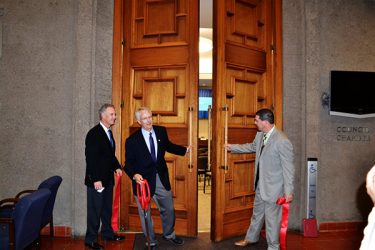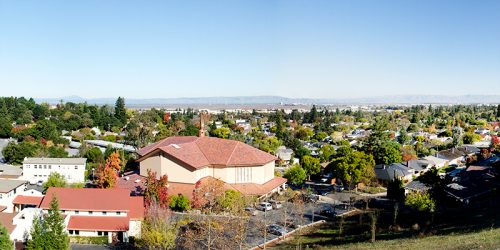This essay was sparked by a comment I got on my post, The 2nd Amendment Does Not Prevent Firearm Regulation. Here’s the comment:
It is nice you cite a kinds of court cases, however I’d like to know where in the Constitution you think it allows government to regulate arms. “A well regulated militia, being necessary to the security of a free state, the right of the people to keep and bear arms, shall not be infringed.”
“Shall Not Be Infringed” is very clear and just because it has been Infringed buy government doesn’t mean that was the Framers original intent.
That’s a good question, and it gets to the heart of many Constitutional debates.
The short answer is that I’m not just citing cases from a lower-level court. I was quoting the opinion handed down by the Supreme Court, defining the current interpretation of the 2nd Amendment. The Constitution makes the Supreme Court the final arbiter of what the Constitution means in any given situation.
Put another way, the Constitution doesn’t mean what the commentator or I or anyone else says it means; it means what a majority of the Supreme Court says it means.
The longer answer involves the way in which people choose to interpret the Constitution (and here I’m talking about all of us ordinary folks, not Supreme Court justices).
I think it’s great when people study the Constitution, as the commentator has. In doing so, it’s worth keeping in mind that it’s been studied and analyzed by tens of thousands of people for over 220 years. Many of those people were among the sharpest minds our country has ever produced, and we’ve produced some very brilliant people.
All that effort would not have been expended — it would not have needed to be expended — if it were possible to simply read the Constitution and conclude how our system of government operates. But many people, particularly when first approaching the Constitution, do just that. I call that the “fundamentalist approach” to understanding the Constitution, because it presupposes the document’s entire meaning is contained only in its words.
The reality is that’s not the case. Which is why all that extra effort was, and still is being, exerted. It’s also part of why the Constitution is often referred to as a “living document”: while the words on the page don’t change, except when they’re amended, their meaning does, because meaning generally depends, at least in part, on context. Most of the work done by the Supreme Court is, in fact, figuring out what the words of the Constitution mean as our society evolves and changes.
When studying the Constitution, you’ll almost certainly come across the debate between “strict constructionists” and others. The fundamentalist view of strict constructionism is that the only thing that matters is what the original authors of the Constitution and its amendments meant when they wrote the words. Others argue that for those words to continue to make sense, they must be interpreted.
The reality, I’d argue, is, like most such situations, somewhere in between. As a current Supreme Court justice famously pointed out, it’s not like the original authors documented every single thought they had about the words they were writing, so what they “meant” is inherently fuzzy.
Even strict constructionists, like Antonin Scalia, interpret the Constitution. You can see that in his discussion about whether the 18th century term “firearms” covers things like machine guns, or one day soon, no doubt, high-energy battlefield lasers. The “strict constructionist” debate is about how much interpretation to do, not the need for interpretation itself.
Which gets us back to the limitations of the fundamentalist approach to understanding the Constitution. If it must be interpreted, then one can’t just read the words on the page. You must read and understand the entire body of Constitutional law, of which the Constitution is the key and central – but not only – part.
I understand the strong desire for many people to take a fundamentalist approach to the Constitution. Indeed, the fundamentalist approach is very attractive in many areas of life: it simplifies and clarifies complex situations to a point where alternatives can be seen, and choices made. That’s called abstracting a situation, and it’s a very powerful way of thinking.
But as my 7th grade algebra teacher admonished me and my classmates when we were struggling to master word problems, you must be careful not to abstract things too far. He used to complain our initial approach to problem solving was “when in doubt — about what some part of the problem meant– leave it out”. Which let us solve a problem, but didn’t solve the problem, because we’d abstracted it into something completely different.
In years past, Constitutional law experts have argued the presence of the word “militia” in the 2nd Amendment meant that, if you weren’t a member of the National Guard, you had no Constitutional right to a firearm. The courts decided that that was too much of an abstraction, too broad an interpretation. Others have argued that citizens should be allowed to own machine guns, because they’re merely firearms. That’s been denied (or at least not successfully challenged), because it overly-abstracted what the 18th century authors meant by firearms.
In the Heller decision, and its successors, the Supreme Court made it clear that blanket bans on things like handguns and rifles are not Constitutional. But the Court also found the public has a legitimate, Constitutionally-protected interest in regulating firearms, and that not all machines that fire bullets are necessarily “firearms” as envisioned by the Framers.
That flies in the face of the fundamentalist approach to understanding the 2nd Amendment. But it is very much in keeping with the concept that the Constitution, and the rights it defines, must be interpreted within the broader context in which they operate: a complex, dynamic democratic Constitutional republic, of over 320 million people, governed by a complex framework whose meaning exists, in part, in context.




























